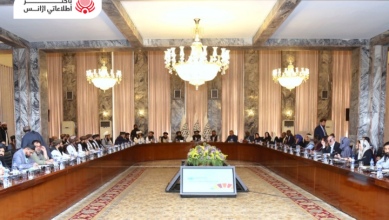
Wednesday July 1, 2015
Kabul (BNA) Fasting mean Seyam in Arabic and the month of Ramadan is called the month of Seyam in which Muslims around the world are incumbent to observe fast. Sawm means to avoid or give up eating, drink between certain hours before sunrise to sunset and avoid whatever that abolishes Seyam. These refrains are the necessities of Ramadan. Now if Seyam means to avoid and refrain particularly from eating and drinking during days that usually shows fasting, this question raises that what is the philosophy behind this refusal and avoid from eating and drinking? Why the Muslims have to sustain thirst and hunger from dawn to evening for one month and refuse eating and drinking? If the meaning of this philosophy is this that the fasting Muslims realize the hard condition of hungry and thirsty people with their own hunger and thirst, every man and Muslim even without being hungry or thirsty knows very well that hunger and thirst is very hard and unpleasant. Therefore the religious philosophy of Ramadan which is incumbent on all Muslims has no root in realizing of hunger and thirst of people who suffer this condition. So what is the philosophy of Ramadan behind?
The response to this question has been frankly and clearly given in verse 183 of Baqara part of holy Quran as following, Oh Muslims, Ramadan has been revealed and incumbent on you as it was incumbent on your predecessors, so to become virtuous. In this verse, the frank explanation of incumbency and necessity of Ramadan for Muslims has been given and the philosophy of Ramadan has been described unequivocally. Ramadan has been incumbent on Muslims to achieve abstemiousness. Namely the philosophy of Ramadan incumbency doesn’t turn to this that the Muslims keep themselves thirsty and hungry from dawn to evening. So, if refraining or fasting is to avoid eating and drinking and other actions that abolish fast, this refusal and parsimony should lead Muslims to abstinence, then in fact fasting is virtuousness and parsimony doesn’t restricted to avoid eating or drinking only that the Muslims keep their stomachs empty from food and water from dawn to evening. What is this virtuousness that causes incumbency of Ramadan on Muslims? Virtuousness is parsimony from all actions and behaviors in Islamic Sharia that includes virtue and voice within Islamic Sharia. Oppression, violation, injustice, murder, destruction, abuse, harassment of people, insecurity, lie and back billing, robbery, embezzlement, bribery, hypocrisy, fraud, tricking, fanaticism, discrimination, zealousness, etc are voices which all of them should be refused during Ramadan like eating and drinking, because under the atmosphere of parsimony from voices, fasting leads Muslims to the position virtuousness. Otherwise fasting with committing of abovementioned crimes and since is hypocrisy.




